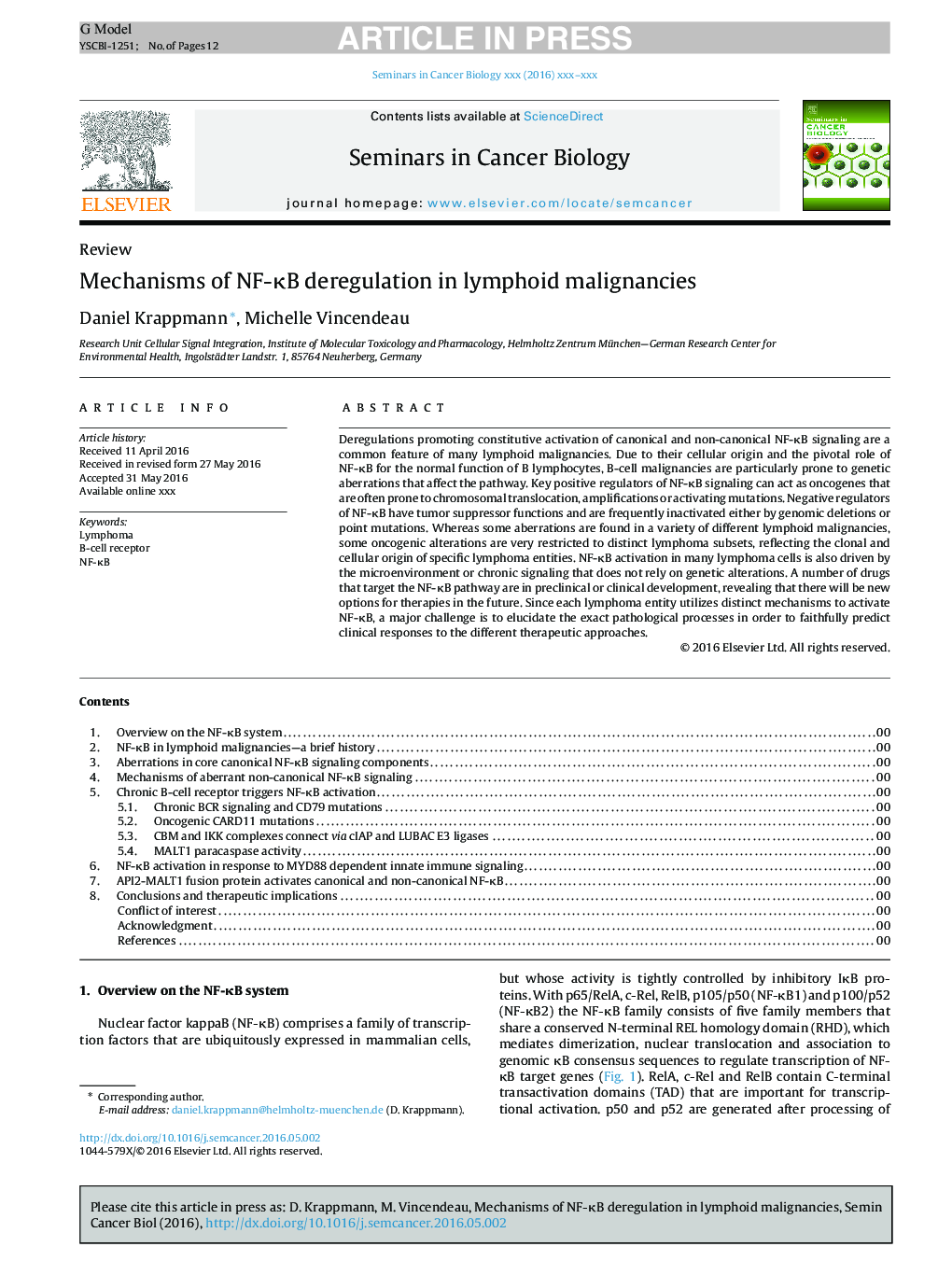| Article ID | Journal | Published Year | Pages | File Type |
|---|---|---|---|---|
| 8362036 | Seminars in Cancer Biology | 2016 | 12 Pages |
Abstract
Deregulations promoting constitutive activation of canonical and non-canonical NF-κB signaling are a common feature of many lymphoid malignancies. Due to their cellular origin and the pivotal role of NF-κB for the normal function of B lymphocytes, B-cell malignancies are particularly prone to genetic aberrations that affect the pathway. Key positive regulators of NF-κB signaling can act as oncogenes that are often prone to chromosomal translocation, amplifications or activating mutations. Negative regulators of NF-κB have tumor suppressor functions and are frequently inactivated either by genomic deletions or point mutations. Whereas some aberrations are found in a variety of different lymphoid malignancies, some oncogenic alterations are very restricted to distinct lymphoma subsets, reflecting the clonal and cellular origin of specific lymphoma entities. NF-κB activation in many lymphoma cells is also driven by the microenvironment or chronic signaling that does not rely on genetic alterations. A number of drugs that target the NF-κB pathway are in preclinical or clinical development, revealing that there will be new options for therapies in the future. Since each lymphoma entity utilizes distinct mechanisms to activate NF-κB, a major challenge is to elucidate the exact pathological processes in order to faithfully predict clinical responses to the different therapeutic approaches.
Keywords
Related Topics
Life Sciences
Biochemistry, Genetics and Molecular Biology
Biochemistry
Authors
Daniel Krappmann, Michelle Vincendeau,
